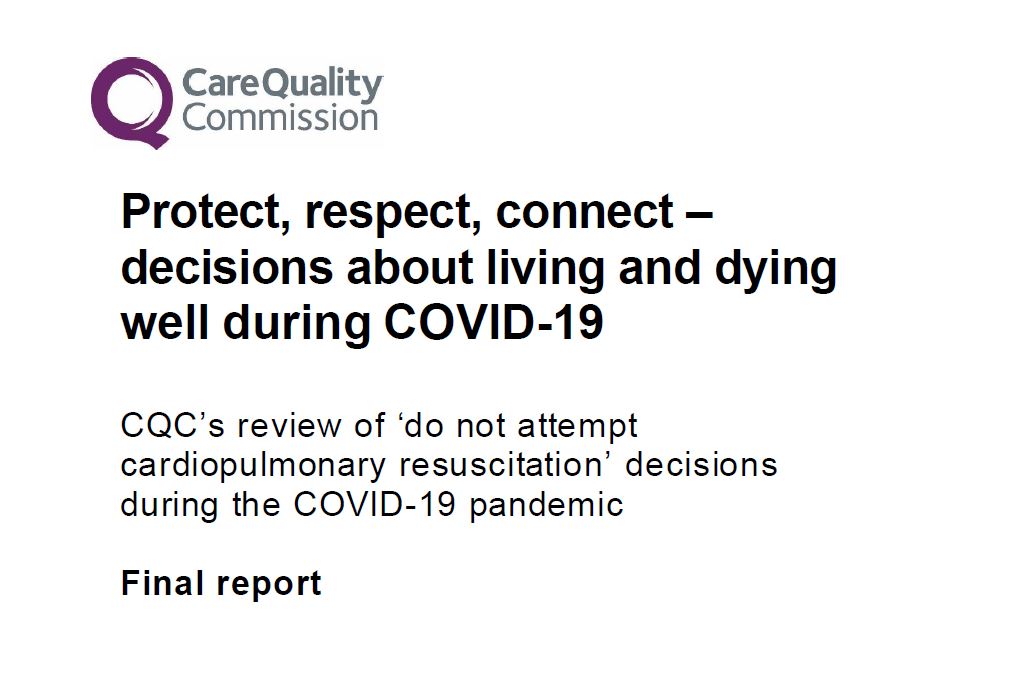Dr Louise Tomkow is a NIHR Academic Clinical Lecturer at the University of Manchester and ST7 in Geriatric Medicine at Salford Royal Hospital. Her research interests are around health inequalities, healthcare access and end of life care. She Tweets at @ljt2211.
Dr Felicity Dewhurst is a Consultant in Palliative Medicine, St Oswald’s Hospice and Honorary Clinical Senior Lecturer, Population Health Sciences Institute, Newcastle University. Her research is focussed on inequity of palliative care provision.
Professor Chris Todd is Director of the UK National Institute for Health and Care Research (NIHR) Policy Research Unit Older People and Frailty, and Lead for Healthy Ageing, NIHR Applied Research Collaboration-Greater Manchester. His work is broadly Health Services and Policy Research related to promoting healthy ageing.
Research shows that Cardiopulmonary Resuscitation CPR is unlikely to be successful for older frailer people, thus healthcare professionals must consider whether it is appropriate. Do Not Attempt Cardiopulmonary Resuscitation (DNACPR) decisions are an important way of avoiding the harm associated with inappropriate and aggressive treatment and allow people to have a natural, dignified death. During the COVID-19 pandemic DNACPR decision-making and communication was problematic. Our recent paper in Age and Ageing describes a qualitative research study exploring the experiences of relatives who discussed DNACPR with medical professionals.
Many of the relatives interviewed found the discussions difficult. This resulted in misunderstanding, mistrust, and distress. A particular source of confusion was the role of patients’ relatives in the decision-making process. Many relatives felt they held responsibility for making the 'right' choice and described enduring emotional consequences and guilt of this. Furthermore, some relatives were frustrated by being nominally involved in decision-making, yet having their wishes overlooked by clinicians. Some of those interviewed believed that DNACPR was used to limit other aspects of care, or confused it with the cessation of all medical treatment. For some the conversations felt rushed, with little opportunity to ask questions, causing dissatisfaction amongst relatives and suggesting that current guidance is challenging for clinicians working in a stretched health service. Many people told us they felt a public education campaign was needed to better inform people about CPR, DNACPR, and the decision-making process.
So, what does this mean for the future of DNACPR discussions? Two important legal judgements in 2014 meant that clinicians in the UK must inform patients and/or their relatives that CPR will not be offered when it is felt not to be of benefit. This is unlike any other futile medical intervention. By highlighting how current practice can have difficult-to-anticipate and lasting negative emotional impacts on relatives, this research raises questions about the current approach to DNACPR decision-making and practice.
Evidence shows that DNACPR discussions are best had by someone who knows the patient and their relative well. However, during the pandemic, almost half of DNACPR discussions occurred during an emergency hospital admission, by staff who are obliged to involve the patient and family in these often-distressing conversations. The 2014 Court of Appeal judgement stated that the only convincing reason for not discussing DNACPR was the causation of physical or psychological harm. Although the current legal framework aims to protect the human rights of patients and relatives, our research suggests it risks adversely affecting these very same individuals in the process. So, is it time for a more fundamental rethink about the legal requirement to discuss DNACPR, especially when CPR is deemed futile?

